WATER AND SANITATION IN
THE WORLD'S CITIES
WATER AND SANITATION IN
THE WORLD'S CITIES
LOCAL ACTION FOR GLOBAL GOALS
United Nations Human Settlements Programme
(UN-HABITAT)
Earthscan Publications Ltd
London Sterling, VA
First published in the UK and USA in 2003 by Earthscan Publications Ltd
for and on behalf of the United Nations Human Settlements Programme (UN-HABITAT)
Copyright United Nations Human Settlements Programme (UN-HABITAT), 2003
All rights reserved
United Nations Human Settlements Programme (UN-HABITAT)
PO Box 30030, Nairobi, Kenya
Tel: +254 2 621 234
Fax: +254 2 624 266
Web: www.unhabitat.org
DISCLAIMER
The designations employed and the presentation of the material in this publication do not imply the expression of any opinion whatsoever on the part of the Secretariat of the United Nations concerning the legal status of any country, territory, city or area, or of its authorities, or concerning delimitation of its frontiers or boundaries, or regarding its economic system or degree of development. The analysis, conclusions and recommendations of the report do not necessarily reflect the views of the United Nations Human Settlements Programme (UN-HABITAT), the Governing Council of UN-HABITAT or its Member States
HS/682/03E
ISBN: 1-84407-004-2 paperback
1-84407-003-4 hardback
Typesetting by MapSet Ltd, Gateshead
Page design by S&W Design Ltd
Cover design by Danny Gillespie
Cover photographs UN-HABITAT Water for African Cities Programme (top) and GHK/Kevin Taylor (bottom)
Printed and bound in the UK by William Clowes, Suffolk
For a full list of publications please contact:
Earthscan Publications Ltd
120 Pentonville Road, London, N1 9JN, UK
Tel: +44 (0)20 7278 0433
Fax: +44 (0)20 7278 1142
Email: earthinfo@earthscan.co.uk
Web: www.earthscan.co.uk
22883 Quicksilver Drive, Sterling, VA 20166-2012, USA
Earthscan is an editorially independent subsidiary of Kogan Page Ltd and publishes in association with WWF-UK and the International Institute for Environment and Development
A catalogue record for this book is available from the British Library
Library of Congress Cataloging-in-Publication Data
Water and sanitation in the world's cities : local action for global goals / United Nations Human Settlements Programme (UN-HABITAT).
p. cm.
Includes bibliographical references and index.
ISBN 1-84407-004-2 (pbk.) ISBN 1-84407-003-4(hardback)
1. Municipal water supplyDeveloping countries. 2. SanitationDeveloping countries. I. United Nations Human Settlements Programme.
TD327.W353 2003
363.61091724dc21
2003002259
Printed on elemental-chlorine-free paper sourced from sustainably managed forests
Foreword
The 20th century will be remembered for unprecedented technological advances, the acceleration of globalization and the urbanization across this planet. The closing years of the last century witnessed a slow but steady decline in the proportion of people living in extreme poverty, and several countries are now back on track to achieve universal primary education. Yet, despite these advances, at the start of the new millennium, over a billion of the world's people remain without access to safe drinking water and over twice that number are denied access to adequate sanitation.
World leaders meeting at the Millennium Summit and the following World Summit on Sustainable Development resolved to halve, by 2015, the proportion of people without sustainable access to safe drinking water and basic sanitation. Achieving this goal will not be easy, given the mounting population pressures, rapid urbanization and ubiquitous resource constraints.
Unquestionably, the commitment of policy-makers to translate these global goals into country- and city-level goals and targets will be a necessary first step. The goals may be global in character but they must be implemented locally, where people live and where shelter and services are required.
Strong political leadership and support from national governments will be needed to turn things around. A stable policy environment will be essential to attract fresh investment in water and sanitation. And the urban poor, mostly living in slums and squatter settlements, should, unquestionably, receive the high priority regarding future investment that they deserve.
It will be equally important to put in place effective monitoring mechanisms that will allow the tracking of progress towards safe drinking water and basic sanitation. The global monitoring mechanisms currently available have proved to be incapable of capturing the real aspirations and needs at the local level. We need monitoring mechanisms that will allow local voices to be heard and their perceptions to be relied upon.
The timing of the UN-HABITAT report Water and Sanitation in the World's Cities could not be more opportune. The United Nations Millennium Project has just embarked on the identification of the best strategies for meeting the Millennium Development Goals and related targets. By the target year of 2015, nearly 60 per cent of the world's population will make cities their home. Meeting the rapidly growing urban demand for safe water and adequate sanitation facilities will be a daunting challenge. The analytical work in this report and its central finding that local solutions are key to achieving global goals should provide a valuable input to the work of the Millennium Task Force.
Anna Kajumulo Tibaijuka
Under-Secretary-General, United Nations
Executive Director, UN-HABITAT
Acknowledgements
Water and Sanitation in the World's Cities was made possible by the generous support of the Swedish International Development Cooperation Agency (Sida) and the Japan Water Resources Association (JAWA).
Water and Sanitation in the World's Cities was prepared under the supervision of Kalyan Ray, Chief of Water, Sanitation and Infrastructure Branch. Key substantive support was provided by Graham Alabaster, Andre Dzikus, Brian Williams and Neeru Singh of the same branch.
An initial outline of the report was prepared by David Satterthwaite of the International Institute for Environment and Development (IIED) in close consultation with UN-HABITAT.
An annotated outline of the report was discussed in a Stakeholders Consultation organized by UN-HABITAT during the first World Urban Forum held in Nairobi, Kenya, on 10 May 2002. The meeting was chaired by Sir Richard Jolly, Chairman of the Water Supply and Sanitation Collaborative Council, and was widely attended by expert delegates to the World Urban Forum, NGOs and representatives of external support agencies.
The preparation of the report was entrusted to IIED with David Satterthwaite and Gordon McGranahan acting as the main consultants and principal resource persons with support from Hannah Reid. They brought into this work strong personal commitment, extraordinary energy and a rare degree of professionalism to complete this report within an almost impossible deadline.

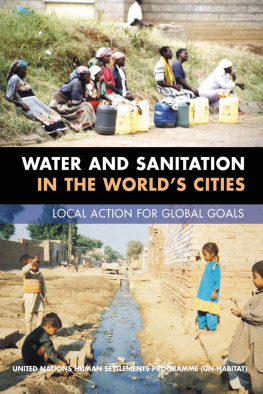


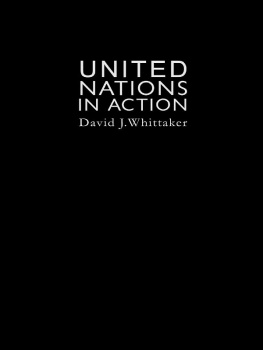
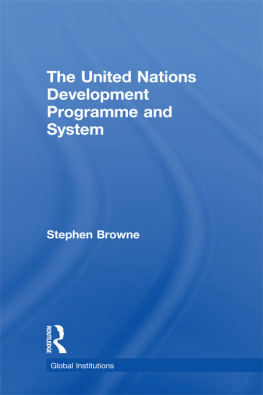
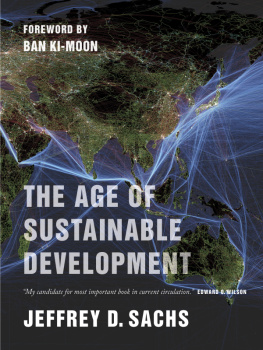

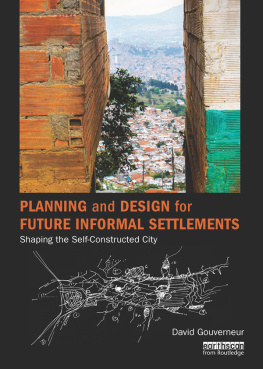
![David E Newton] - The global water crisis : a reference handbook](/uploads/posts/book/104432/thumbs/david-e-newton-the-global-water-crisis-a.jpg)



